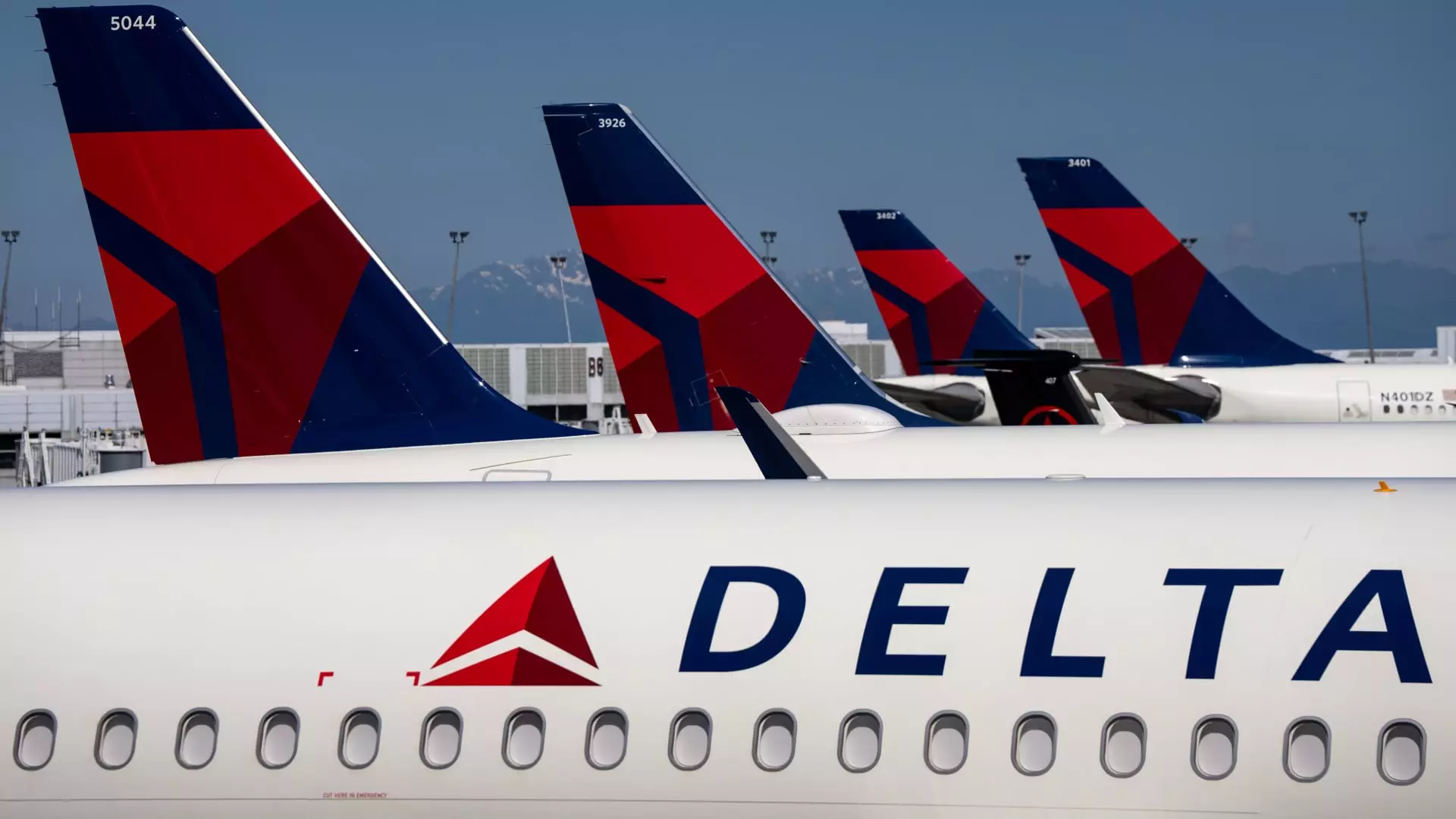The airline industry, often viewed as a barometer for the economy, finds itself ensnared in a web of uncertainty that is unprecedented. Delta Air Lines, the largest U.S. carrier by revenue, has indicated a significant slowdown in travel demand tied closely to the volatile trade policies under President Donald Trump’s administration. In a recent communication, Delta’s CEO, Ed Bastian, expressed concern over a climate that is not conducive to their previously optimistic growth forecasts, labeling the current approach to trade as “the wrong strategy.” As Delta opts against increasing flight capacity in the latter half of the year, it’s essential to scrutinize the underlying factors and implications of such decisions.
Financial Forecasts and Market Reactions
Delta’s disappointing revenue projections paint a grim picture contrasted with Wall Street’s expectations. The airline predicted that its second-quarter revenue could either dip by up to 2% or see a modest gain of around 2%. Meanwhile, analysts had anticipated a growth of 1.9%, underscoring a growing disconnect between market expectations and Delta’s performance realities. Adjusted earnings per share are also projected to fall short, with estimates ranging from $1.70 to $2.30, compared to analyst expectations of $2.23. This divergence from anticipated growth raises alarms about broader consumer sentiment and the shifting dynamics within the airline sector, pointing toward an environment where corporate travel demand is faltering.
Declining Travel Demand: A Crucial Indicator
For an airline that once reveled in robust demand, the recent survey of travel sentiment highlights a significant pivot. Bookings, especially in main cabins, have fallen below expectations, revealing a retreat among corporations reconsidering their travel strategies in light of unpredictable economic conditions and potential governmental workforce reductions. This drop in demand is starkly juxtaposed with earlier predictions of robust 10% growth at the beginning of the year, reflecting a rapid deterioration in consumer confidence that Bastian attributed to external pressures, including Trump’s policies.
Comparison of Performance and Competitive Landscape
The revelation that Delta will keep its capacity flat year-over-year, instead of pursuing planned expansions, serves as a cautionary note for the broader airline industry. Analysts foresee potential waves of similar announcements from Delta’s competitors like United, American, and Southwest as they prepare to report their own earnings. With a backdrop of economic uncertainty globally, Delta’s hesitance to expand reflects a cautious approach. In the first quarter, despite a jump in net income to $240 million from $37 million the previous year, the airline’s recovery appears fragile against a looming cloud of pessimism radiating from broader economic indicators.
The Resilience of Premium Travel
Despite the dismal outlook for main cabin bookings, Delta’s international and premium travel sectors continue to display surprising resilience. This anomaly presents a critical opportunity to analyze consumer behavior, revealing that while standard business travel may be retracting, upper-tier and international markets are still holding steady. Bastian’s pointers toward the strength in premium segments suggest that while overall demand dips, a significant segment of the market is still willing to invest in better travel experiences, implying potential avenues for airlines to reposition their offers.
Corporate Diligence: Protecting Margins Amidst Challenges
In the face of declining revenues and uncertain consumer behavior, Delta is adopting a proactive stance in protecting its margins and cash flow by focusing on controllable factors. This strategic pivot highlights a necessary shift in corporate mindset: in challenging times, maintaining financial health comes from prudent decision-making and streamlined operations. Bastian aptly noted, “In this slower-growth environment, we are protecting margins and cash flow by focusing on what we can control.” This level of vigilance will undoubtedly dictate future strategies across the airline industry as companies navigate similar turbulent economic waters.
In summation, Delta Air Lines’ current predicament serves as a microcosm of broader economic uncertainties, driven significantly by policy decisions and consumer sentiment. The decisions made in the ensuing months will be pivotal for not only Delta but the entire airline landscape. Will companies continue to pivot in response to shifting economic conditions, or will there be a resurgence in travel demand? Only time will tell, and for now, the skies remain clouded with uncertainty.


Leave a Reply